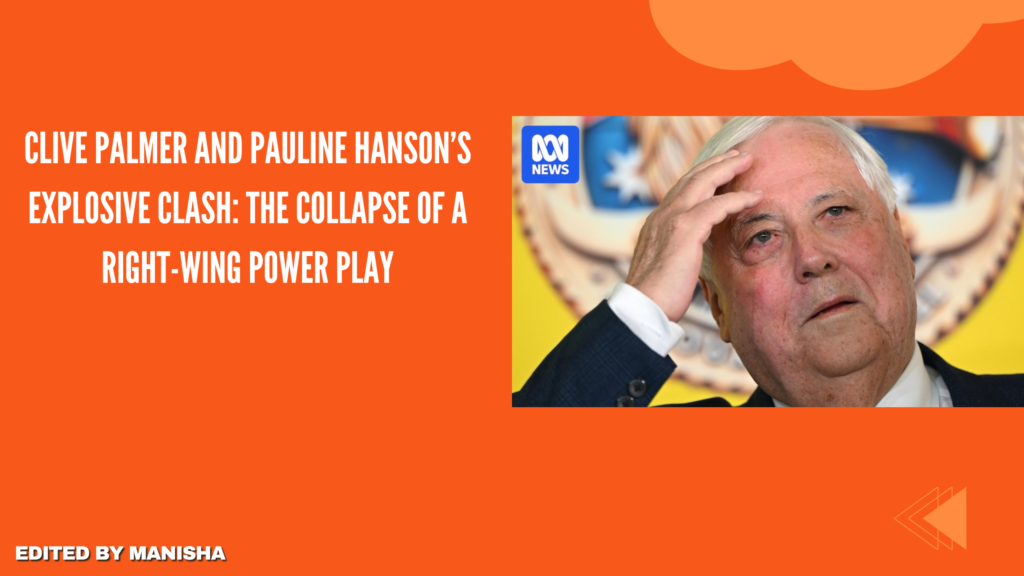
Clive Palmer and Pauline Hanson clashed after their attempt to form a unified political movement fell apart, mainly over disagreements about leadership and financial backing. The pair had hoped to create a single right-wing populist group but their talks failed when each side accused the other of trying to dominate the future party.
Palmer, concerned that various “Australia First”-type groups might split their voter base ahead of the next election, announced he would campaign on a platform inspired by Donald Trump. He introduced a new party name, Trumpet of Patriots, after his unsuccessful legal effort to revive the United Australia Party. The collapse of talks with One Nation followed, with both sides blaming each other for seeking control.
Palmer claimed that Hanson demanded to become “president for life,” a proposal he rejected. “I told her, ‘You can’t be president for life. Not even I can be president for life,'” Palmer stated at a press conference in Canberra.
A spokesperson for Hanson responded, stating that Palmer had approached One Nation, but the party was “not for sale.”
The failed merger highlights an ongoing issue in Australian politics, as populist figures approach their 70s. Palmer, Hanson, and independent Queensland MP Bob Katter are familiar figures in Australian politics, having spent over a century combined in public life. However, their dominance within the right-wing populist landscape has stifled the rise of younger leaders, as their influence remains strong, even if they are nearing the end of their political careers.
The failure to unify the movement raises questions about the far-right’s role in the upcoming election, particularly as Donald Trump’s political resurgence has sparked renewed enthusiasm for nationalistic, nativist figures. Lyle Shelton, national director of Family First, expressed concern that Palmer’s new party would further split the centre-right minor party vote.
Despite spending over $120 million on election materials in 2022, Palmer’s United Australia Party only secured a single Senate seat. Similarly, One Nation, despite running candidates in nearly every lower house seat, managed to secure only two Senate positions, including Hanson’s, which was nearly lost to the Legalise Cannabis Australia party.
Though their election results have been weak, both Palmer and Hanson are seen as important players in close races due to the preferences they control. Hanson recently revealed that she had approached former National Party leader Barnaby Joyce to join One Nation, but Joyce declined the offer.
With growing speculation that neither the Labor Party nor the Coalition will secure a majority in the upcoming election, Katter could emerge as one of several key figures in a potentially hung parliament.
Mark Kenny, Director of the Australian Studies Institute at the Australian National University, believes the current populist leaders are nearing the end of their political careers. While they might try to capitalize on Trumpism, they have struggled to gain a larger foothold. “They won’t get a bigger stake in the game unless they can figure out a way to get involved,” Kenny said. “None of these people have much longer to go in politics, and there may be an urgency to make a major move now before it’s too late.”